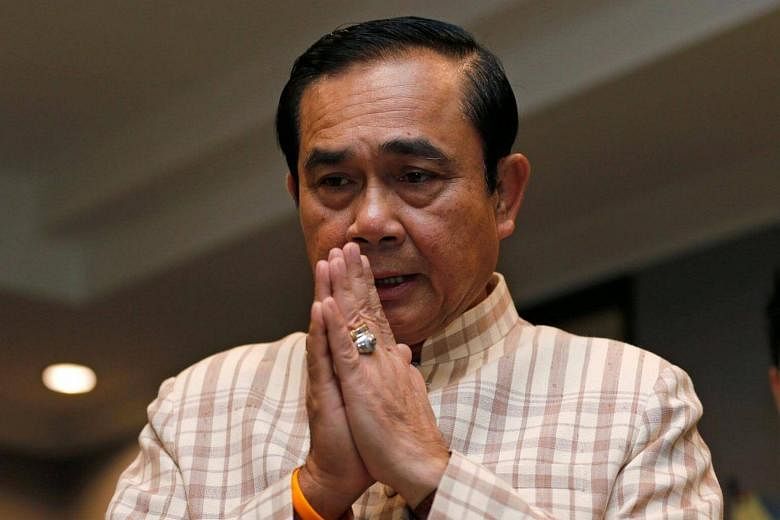BANGKOK (THE NATION/ASIA NEWS NETWORK) - The Thai government is optimistic about the country's economic outlook for 2018, with Prime Minister Prayut Chan-o-cha saying his New Year's resolution is to push the "Smart City" concept in the Eastern Economic Corridor (EEC).
Government spokesman Sansern Kaewkamnerd said on Monday (Jan 1) that the government expected that the economy would boom and extreme poverty "be eradicated" this year, despite signs of a deteriorating economy, including mass layoffs in several sectors.
Major-General Sansern said the government planned to allocate "an amount of money" to the grassroots economy, using the tourism and agricultural sectors as mechanisms to create sustainability.
"Many indexes - such as gross domestic product (GDP) growth and the inflation rate - are pointing out that the Thai economy has been strengthened," he said. "Exports are also increasingly expanding. Mega-investment by the state, such as in transport and projects involving the Eastern Economic Corridor, too, will yield [good results]."
Investment will begin by the second quarter of 2018, after the tender process on several big projects is completed, Mr Sansern said.
He said General Prayut had acknowledged people's demand for the government to improve the economy. The premier was aware that as well as improving the macro-economy, it was also essential to strengthen the domestic economy by finding markets and adding value to agricultural products such as rice, rubber and palm oil, the government spokesman added.
However, Mr Prayut was also encouraging low-income earners to set goals for their own lives, so they could improve themselves alongside the government's efforts, Mr Sansern added.
Meanwhile, the Prime Minister said his intention for this year was to advance the EEC project. He said he was looking into relevant laws to find ways to speed up the project, which involves investment in creating "smart cities" in Rayong, Chon Buri and Chachoengsao.
He also asked private companies to work with the government in the plan to boost regional economies along the eastern seaboard.
"Right now, investment has started to pour into the EEC, so I want the Smart City project to become a reality as soon as possible," Mr Prayut said. "But the government cannot work on this task alone, we need cooperation from the big private companies and to work together."
"The people also need to understand that this project will not specifically benefit just some people. Everyone will get advantages from this project as a whole, and big businesses will profit as well because no one wants to invest in unprofitable projects."
Mr Prayut also asked his countrymen to support the tourism industry. He said that more than 35 million tourists visited Thailand in 2017 because of the country's stability.
"Under my administration, the country is peaceful and stable, attracting larger numbers of tourists every year," he said. "All Thai people need to preserve peace in our society and take care of our guests, as they provide us huge income."
Meanwhile, opposition leader Abhisit Vejjajiva of the Democrat Party urged the junta government to revise its economic policies and plans in order to tackle a decline in people's well-being.
He used a train metaphor to explain the current economic scene.
"The government's mindset seems to be that they focus on empowering people with rich resources to lead the economic system, like a train engine dragging along the rest of the carriages," he said. "In fact, however, the engine might not only be linked to the carriages, but also sucking power from those carriages," the former prime minister said. "So the engines alone are the fast runners, leaving the rest vulnerable."
His metaphor also referred to several mega-projects invested in by the junta government. "It may be necessary to move them (the mega-projects) forward. However, don't expect that they can raise the well-being of people on a large scale," he said.
Development projects in the EEC, while requiring a great deal of investment, will bear fruit only in some areas of the provinces covered by the plans, he added. Thailand's GDP, which has grown yet ranks low at the regional level, does not reflect an improvement in people's well-being, Mr Abhisit stressed.

